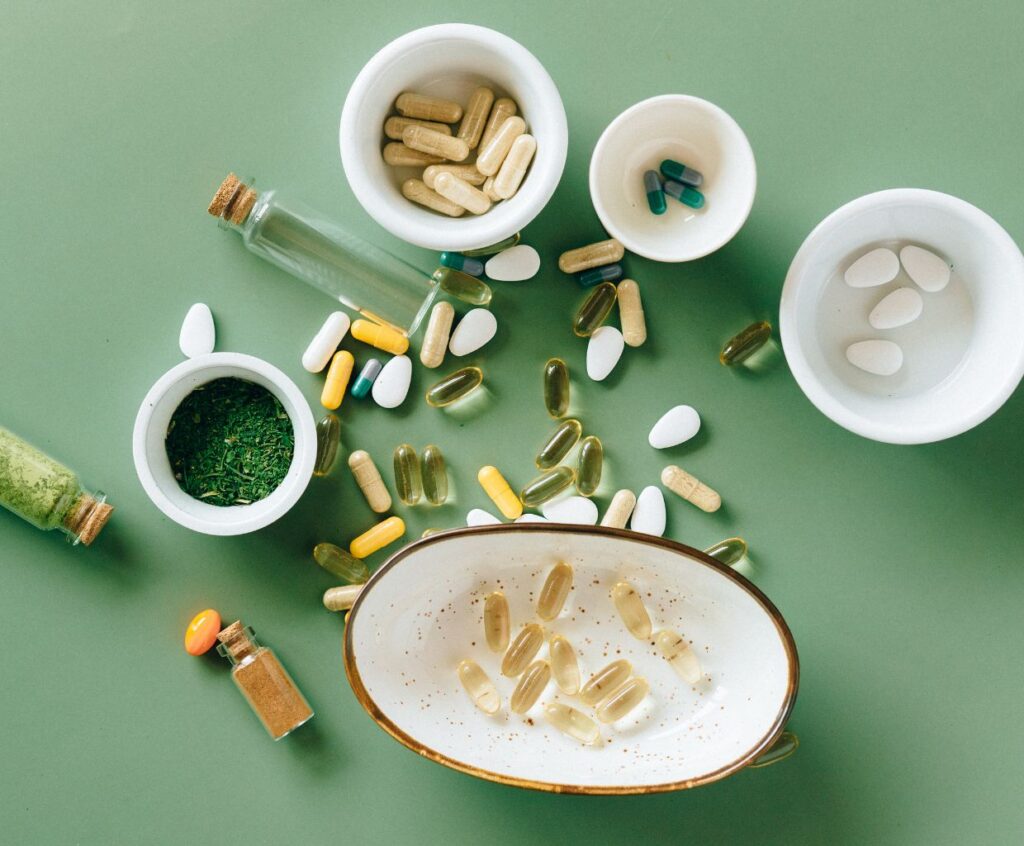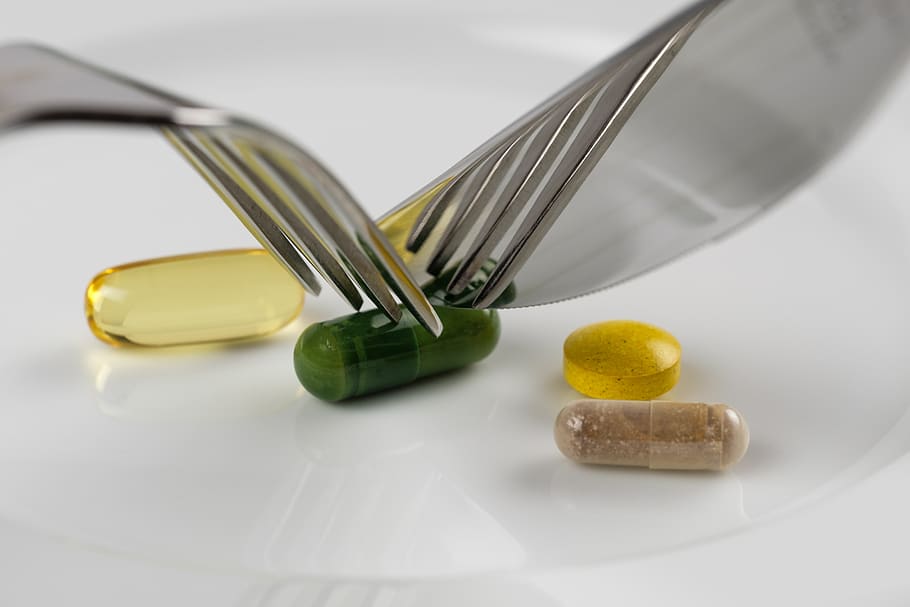Top Nutritional Supplements for a Healthy Pregnancy: What You Need to Know
Welcome to our guide on the top nutritional supplements for a healthy pregnancy! Pregnancy is a particular time in a woman’s life, and it’s essential to take care of both your health and the health of your growing baby.
While a balanced diet is crucial during pregnancy, sometimes getting all the necessary nutrients from food can be challenging. That’s where nutritional supplements come in handy!

1. Prenatal Vitamins
Prenatal vitamins are the cornerstone of any pregnancy supplement regimen. These multivitamins are specifically formulated to provide the essential nutrients for a healthy pregnancy. They typically contain higher levels of folic acid, iron, and calcium, which are crucial for developing the baby’s brain, blood cells, and bones.
2. Omega-3 Fatty Acids
Omega-3 fatty acids, particularly DHA (docosahexaenoic acid), are vital for the baby’s brain and eye development. These healthy fats are found in fatty fish like salmon and sardines, but it can be challenging to consume enough through diet alone. Therefore, taking a high-quality fish oil supplement during pregnancy is highly recommended.
3. Iron
Iron is essential for producing red blood cells, which transport oxygen to the mother and baby. During pregnancy, the body’s iron needs increase significantly. Many women struggle to meet these requirements through diet alone, so iron supplements are often recommended. It’s essential to consult with your healthcare provider about the appropriate dosage to avoid iron overload.
4. Vitamin D
Vitamin D is crucial to bone health, immune function, and well-being. It also aids in absorbing calcium, essential for the baby’s developing bones. While the sun is a natural source of vitamin D, many pregnant women don’t get enough sunlight exposure. Therefore, a vitamin D supplement is often advised, especially in regions with limited sunlight.
Top Nutritional Supplements for a Healthy Pregnancy – Conclusion
Remember, nutritional supplements should complement a healthy diet, not replace it. It’s always best to consult your healthcare provider before starting new supplements during pregnancy.
They can guide you on the appropriate dosages and ensure that you and your baby get the necessary nutrients for a healthy and happy pregnancy.
How do these nutritional supplements contribute to a healthy pregnancy?
Nutritional supplements can contribute to a healthy pregnancy by providing essential nutrients that may be lacking in a pregnant woman’s diet. Here are some ways they can be beneficial:
1. Folic Acid: Folic acid helps prevent neural tube defects in the developing baby’s brain and spine. Taking folic acid before and during early pregnancy can reduce the risk of these congenital disabilities.
2. Iron: Iron is crucial for the mother and the baby as it helps produce red blood cells. It prevents iron deficiency anemia in the pregnant woman and supports the baby’s growth and development.
3. Calcium and Vitamin D: These nutrients are essential for developing the baby’s bones and teeth. They also help maintain the mother’s bone health during pregnancy.
4. Omega-3 Fatty Acids: Omega-3 fatty acids, particularly DHA (docosahexaenoic acid), are essential for the baby’s brain and eye development. They may also help prevent preterm labor and postpartum depression in the mother.
5. Vitamin D: Vitamin D is essential for absorbing calcium and phosphorus, which are necessary for developing the baby’s bones and teeth. It also supports the mother’s immune system and helps maintain her bone health.
6. Prenatal Multivitamins: Prenatal multivitamins generally contain essential nutrients for a healthy pregnancy, including folic acid, iron, calcium, vitamin D, and other vitamins and minerals.
It is important to note that while nutritional supplements can be beneficial, they should not replace a healthy and balanced diet. It is always recommended to consult with a healthcare provider before starting any prenatal supplements to ensure they suit individual needs.
What are the top nutritional supplements recommended for a healthy pregnancy?
Several nutritional supplements are commonly recommended for a healthy pregnancy. These include:
1. Prenatal multivitamins: These supplements are specifically formulated for pregnant women and typically contain essential vitamins and minerals like folic acid, iron, calcium, and vitamin D.
2. Folic acid: Taking folic acid supplements before and during early pregnancy is recommended to help prevent neural tube defects in the baby.
3. Iron: Iron is crucial for producing red blood cells and preventing anemia during pregnancy. Iron supplements may be recommended if a woman’s iron levels are low.
4. Calcium is essential for developing the baby’s bones and teeth. Supplements may be recommended if a pregnant woman is not getting enough calcium from her diet.
5. Omega-3 fatty acids: Omega-3 fatty acids, particularly DHA (docosahexaenoic acid), are essential for developing the baby’s brain and eyes. Fish oil supplements or vegetarian alternatives like algae-based omega-3 supplements are often suggested.
It’s important to note that while these supplements can be beneficial, it’s always best to consult with a healthcare provider before starting any new supplements during pregnancy. They can provide personalized recommendations based on individual needs and circumstances.
Are there any alternatives to nutritional supplements that can provide the same benefits for a healthy pregnancy?
Yes, several alternatives to nutritional supplements can provide similar benefits for a healthy pregnancy. Some of these alternatives include:
1. Whole Foods: A balanced diet of fruits, vegetables, whole grains, lean proteins, and healthy fats can provide the necessary nutrients for a healthy pregnancy. Focusing on eating various nutrient-dense foods is essential to ensure you get all the necessary vitamins and minerals.
2. Prenatal Diet Plans: A prenatal diet plan recommended by a healthcare professional or registered dietitian can help ensure you get all the necessary nutrients for a healthy pregnancy. These plans typically include specific food choices and portion sizes to meet the nutritional needs of pregnant women.
3. Fortified Foods: Some foods are fortified with essential nutrients such as folic acid, iron, and calcium. Examples of fortified foods include certain breakfast cereals, bread, and dairy products. Checking food labels and choosing fortified options can help supplement your nutrient intake.
4. Herbal Remedies: Certain herbal remedies, such as ginger for morning sickness or red raspberry leaf tea for toning the uterus, are commonly used as alternatives to nutritional supplements during pregnancy. However, it is essential to consult with a healthcare professional before using any herbal remedies to ensure they are safe and appropriate for your specific situation.
5. Lifestyle Changes: Making healthy lifestyle changes can also provide benefits during pregnancy. This includes regular exercise, managing stress levels, getting enough sleep, and avoiding harmful substances such as alcohol, tobacco, and drugs.
It is important to note that while these alternatives can help support a healthy pregnancy, healthcare professionals may still recommend nutritional supplements to ensure adequate nutrient intake. Consulting with a healthcare provider or registered dietitian is always recommended to determine the best approach for your needs.

